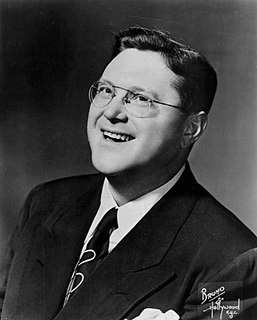A Quote by Charles Kingsley
No earnest thinker is a plagiarist pure and simple. He will never borrow from others that which he has not already, more or less, thought out for himself.
Related Quotes
Whatever the Thinker thinks, the Prover will prove. And if the Thinker thinks passionately enough, the Prover will prove the thought so conclusively that you will never talk a person out of such a belief, even if it is something as remarkable as the notion that there is a gaseous vertebrate of astronomical heft ("GOD") who will spend all eternity torturing people who do not believe in his religion.
Certain I am that every author who has written a book with earnest forethought and fondly cherished designs will bear testimony to the fact that much which he meant to convey has never been guessed at in any review of his work; and many a delicate beauty of thought, on which he principally valued himself, remains, like the statue of Isis, an image of truth from which no hand lifts the veil.
And truly it demands something god like in him who has cast off the common motives of humanity, and has ventured to trust himself for a taskmaster. High be his heart, faithful his will, clear his sight, that he may in good earnest be doctrine, society, law, to himself, that a simple purpose may be to him as strong as iron necessity is to others!
I absolutely never thought I would! But it's something to look forward to in my career. I'm not just the young, leading guy who falls in love, simple and naive. Even just doing Enjolras recently in Les Mis. I used to cover Marius and thought: "Oh, that's simple. What I should be doing." But then when I got Enjolras, I hadn't even thought about it. He's more powerful, sure of himself, a leader. It was nice! It was much harder singing, passionate, declamatory. Which was awesome - and now this!
There is something at the bottom of every new human thought, every thought of genius, or even every earnest thought that springs up in any brain, which can never be communicated to others, even if one were to write volumes about it and were explaining one's idea for thirty-five years; there's something left which cannot be induced to emerge from your brain, and remains with you forever; and with it you will die, without communicating to anyone perhaps the most important of your ideas.
The moment our discourse rises above the ground-line of familiar facts, and is inflamed with passion or exalted thought, it clothes itself in images. A man conversing in earnest, if he watch his intellectual processes, will find that always a material image, more or less luminous, arises in his mind, contemporaneous with every thought, which furnishes the vestment of the thought.... This imagery is spontaneous. It is the blending of experience with the present action of the mind. It is proper creation.
In a community of human beings working together, the well-being of the community will be the greater, the less the individual claims for himself the proceeds of the work he has himself done; i.e., the more of these proceeds he makes over to his fellow workers, and the more his own requirements are satisfied, not out of his own work done, but out of work done by the others.
Someone has said that planning is the place where man shows himself most like God. Nothing is more godlike than the planner, the thinker, the organizer. He is the one who draws the blueprint for success. He is the one who builds the roadway on which accomplishment will travel. It is likely that our greatest opportunity is to have a good set of definitely worked-out objectives that are fully believed in and about which firm determinations have been made.
This is to be observed of the Bishop of London, that, though apparently of a spirit somewhat austere, there is in his idiosyncrasy a strange fund of enthusiasm, a quality which ought never to be possessed by an Archbishop of Canterbury, or a Prime Minister of England. The Bishop of London sympathies with everything that is earnest; but what is earnest is not always true; on the contrary error is often more earnest than truth.
I certainly never believed, more or less, in the "essential doctrines" of Christianity, which represent God as the predestinator of men to sin and perdition, and Christ as their rescuer from that doom. I never was more or less behuiled by the trickery of language by which the perdition of man is made out to be justice, and his redemption to be mercy.






































